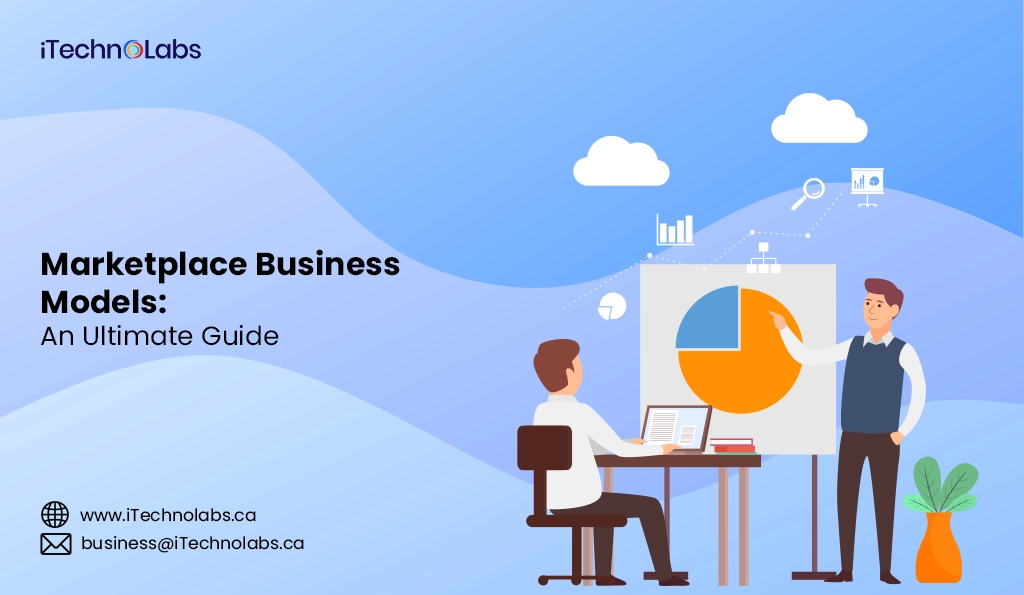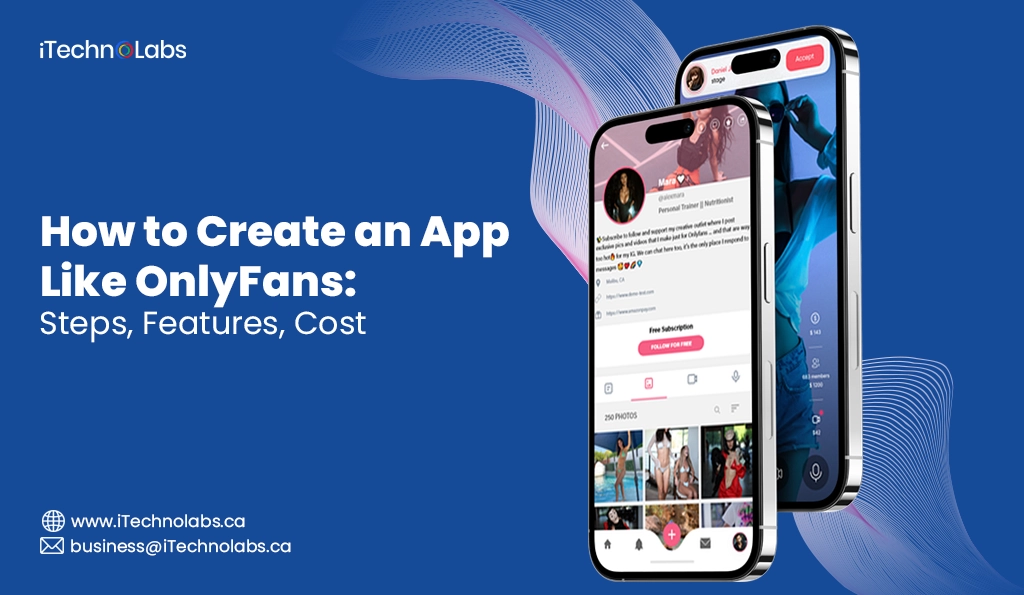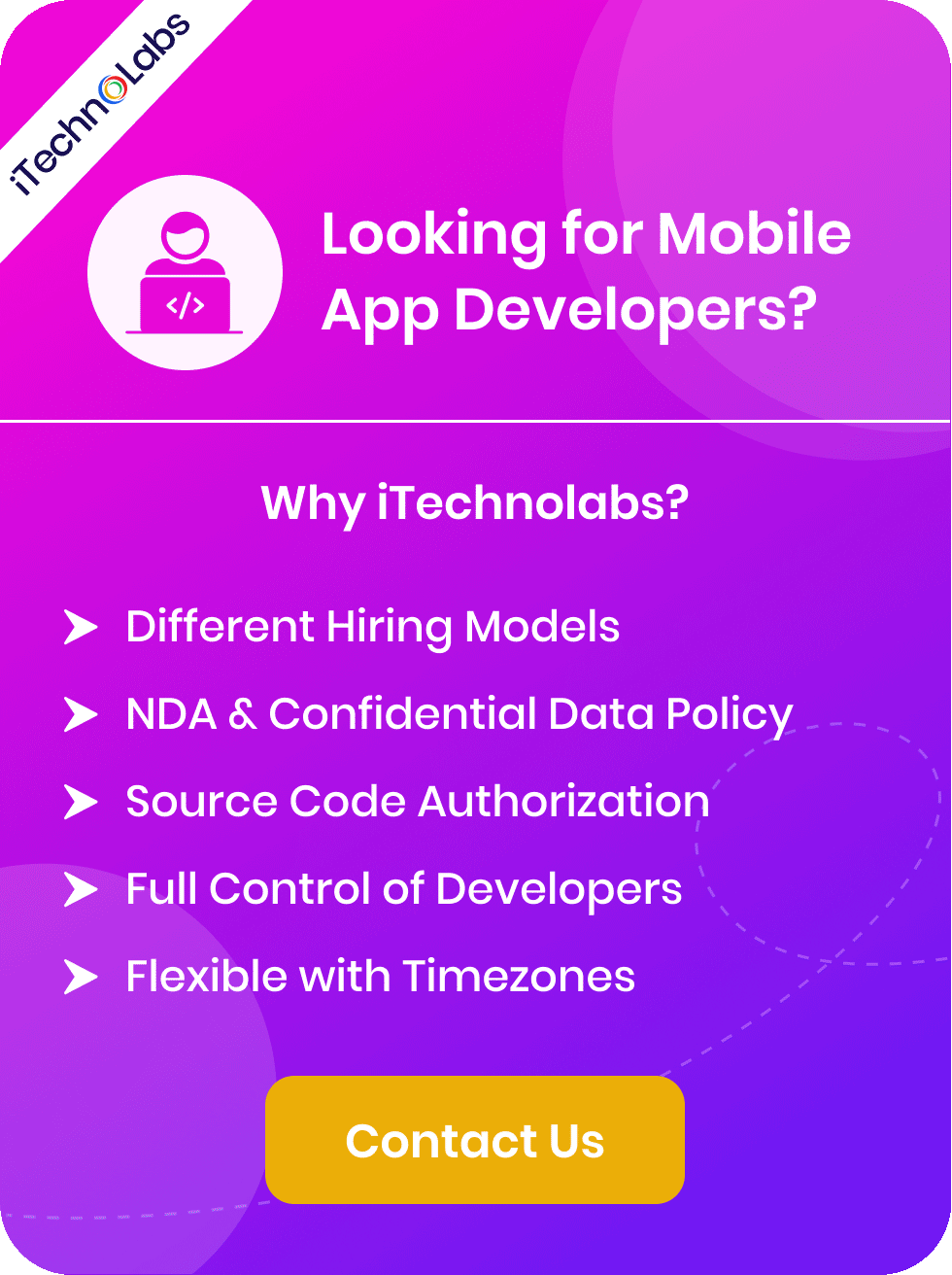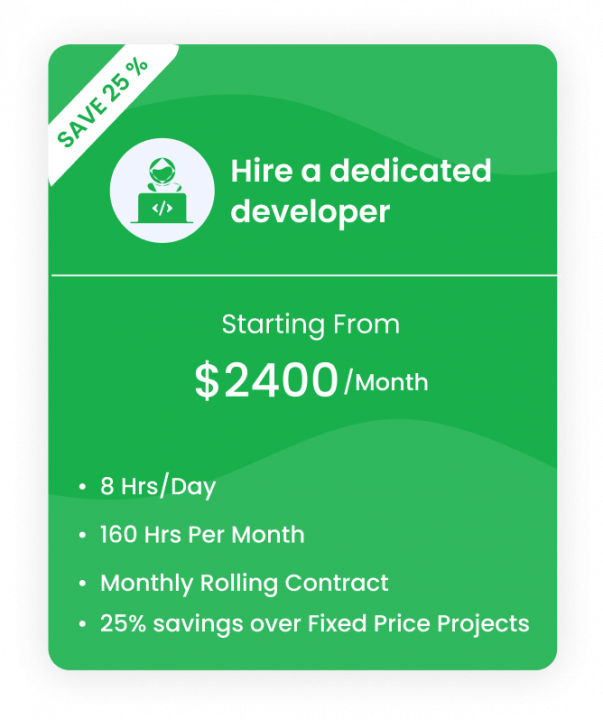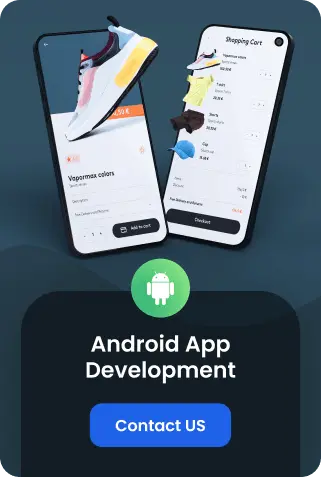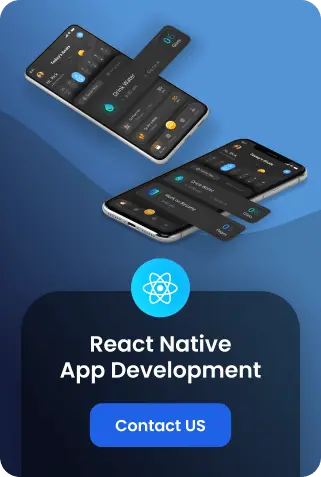Last updated on August 13th, 2024
In today’s digital world, businesses are constantly evolving to keep up with the ever-changing demands of consumers. The rise of e-commerce has opened up a whole new realm of possibilities for entrepreneurs and companies alike. One such business model that has gained immense popularity in recent years is the marketplace business model.
Marketplace business models involve connecting buyers and sellers on a platform that facilitates transactions between them. The most well-known examples of marketplaces include Amazon, Airbnb, eBay, and Uber. These businesses have revolutionized the way we buy and sell goods and services, making it easier than ever before for individuals to start their own businesses and for buyers to find a wide variety of products and services in one place.
Table of Contents
ToggleWhat are marketplaces and how can they work?
Marketplaces are online platforms that enable individuals or businesses to buy and sell goods, services, or both. They act as intermediaries between buyers and sellers, providing a convenient and efficient way for them to engage in transactions. These platforms have revolutionized the way we conduct commerce by breaking down geographical barriers and allowing for a more diverse range of products and services to be available to consumers.
These platforms can work in a variety of ways depending on the type of marketplace. Some marketplaces operate on a commission-based model where they take a percentage of each transaction made through their platform. This model incentivizes the marketplace to help sellers succeed since their earnings are directly tied to the success of the sellers using their platform. Others may charge a monthly subscription fee for sellers to list their products or services, offering predictable revenue for the platform and often additional features or services for the sellers.
Marketplaces may also generate revenue through advertising or by offering additional services such as shipping and fulfillment. For instance, some platforms provide integrated logistics solutions that make it easier for sellers to manage inventory, pack orders, and ship products, thus streamlining the entire sales process. Additionally, marketplaces may offer analytics tools to help sellers understand market trends and consumer behavior, enabling them to optimize their offerings and marketing strategies.
Also Read: How to Create an eCommerce Store with Shopify: A Comprehensive Guide
What do I need to know before marketplace app development?
Before jumping into marketplace app development, there are a few key things to consider. First and foremost, it is crucial to understand the target market for your app. Who will be using it? What are their needs and preferences? Conducting thorough market research can help you determine the potential demand for your marketplace app and identify any gaps or opportunities in the current market.
Know your customer
Understanding your target customers is essential for creating a successful marketplace app. This includes not only their demographics, such as age, gender, and location, but also their behavior, interests, and pain points. By understanding what drives your customers, you can better address their specific needs and preferences.
Conducting surveys or focus groups can provide valuable insights into your target audience. Surveys can help you gather quantitative data on customer preferences and satisfaction, while focus groups can offer more in-depth qualitative insights into customer experiences and expectations. Additionally, you might consider analyzing social media trends and engaging with customers directly through online forums or feedback sessions.
Use the information gathered from these methods to tailor your app to meet the needs of your audience. This could mean adjusting features to better suit their usage patterns, enhancing the user interface for a smoother experience, or introducing new functionalities that address common pain points. By being customer-centric in your approach, you increase the likelihood of creating a marketplace app that not only attracts but retains a loyal user base.
Think of the features that must be in your app
Once you have a clear understanding of your target customers, it’s time to start thinking about the features that your marketplace app must have. These features will be heavily influenced by the type of marketplace you are creating and the needs of your target audience.
For example, if you’re creating a marketplace for freelancers, some essential features might include a profile builder for users to showcase their skills and expertise, a secure payment system for transactions between buyers and sellers, and a review system for rating the quality of services provided.
On the other hand, if you’re creating a marketplace for physical goods, features such as inventory management, shipping integration, and a customer support system may be more critical.
It’s crucial to prioritize the features based on your target audience’s needs and the type of marketplace you’re creating. Conducting market research can help you identify which features are essential and which ones can be added as future upgrades.
Decide how you will earn money from your app
One of the key aspects of creating a marketplace app is determining how you will make money from it. There are several monetization strategies that you can consider, and the most suitable one for your app will depend on your target audience and the type of marketplace you’re building.
Some common monetization strategies for marketplace apps include charging a commission or transaction fee for every sale made on the platform, offering subscription plans with different levels of benefits and features, or including in-app advertisements for additional revenue.
Consider which monetization strategy aligns best with your business goals and customer expectations. Whichever method you choose, it should be clear, transparent, and fair for both buyers and sellers using your marketplace app.
Top popular marketplace business models
Several popular marketplace business models have proven to be successful in the market. These include:
Commission
This model involves charging a percentage of the transaction value as a fee for using the marketplace platform. This is a common monetization strategy used by marketplaces such as Airbnb and Uber.
Subscription
In this model, users pay a monthly or yearly fee to access the marketplace and its features. Popular examples include Amazon Prime and LinkedIn Premium.
Freemium
Similar to subscription models, freemium allows users to access basic features for free but charges for premium or advanced features. Dropbox is an example of a freemium marketplace app.
Who uses this model?
Marketplace business models are not limited to a specific industry or type of product. They can be used for various types of goods and services, from physical products like clothing and electronics to digital downloads such as software and e-books, and even professional services including consulting and freelance work. This versatility allows for a wide range of business opportunities and innovation within the marketplace framework.
Common industries where marketplace apps have been successful include e-commerce, where platforms like Amazon and eBay have revolutionized the way we shop; travel/hospitality, with apps such as Airbnb transforming the accommodation sector; transportation, where Uber and Lyft have redefined personal mobility; and freelance work, with sites like Upwork and Fiverr connecting freelancers with clients across the globe. These examples demonstrate the immense potential and adaptability of marketplace business models across various sectors.
Mixing business models
Marketplace business models can also be combined with other types of business models to create a unique and successful hybrid model. For example, some marketplace apps may also offer subscription services or utilize a freemium model where users can access basic features for free but pay for additional premium features. This blending of different business models allows for even more flexibility and potential for growth within the marketplace.
Challenges and considerations
While marketplace business models have shown great success in recent years, there are still challenges and considerations to keep in mind when starting a marketplace venture. These include identifying the right target market, building trust and safety measures for users, establishing fair and transparent pricing structures, and managing supply and demand for goods or services within the platform. In addition, competition in the marketplace industry is fierce, so creating a unique value proposition and continually innovating will be key to staying ahead.
Read More: A Beginner’s Guide To Turning Your Shopify Store Into A Mobile App
How can iTechnolabs help a startup create a perfect digital marketplace?
As a leading digital solutions provider, iTechnolabs has the expertise and experience to help startups create a successful marketplace platform. Our team of marketplace app developers, designers, and strategists can guide you through the entire process of building a marketplace business model, from ideation and concept development to launch and beyond. We provide comprehensive support, including market analysis, user experience design, robust backend development, and post-launch maintenance. Our goal is to ensure that your marketplace not only meets but exceeds your expectations and those of your users, setting you up for long-term success in a competitive market.
- Market Analysis and Research: Conducted in-depth market research to understand the target audience, competitive landscape, and potential gaps in the marketplace.
- Ideation and Concept Development: Collaborated with the startup to brainstorm and refine their marketplace concept, ensuring alignment with market needs and user demands.
- User Experience Design: Designed a user-friendly interface with intuitive navigation to enhance the user experience and facilitate seamless interactions between buyers and sellers.
- Backend Development: Developed a robust and scalable backend architecture to support a growing user base and handle high volumes of transactions efficiently.
- Trust and Safety Measures: Implemented advanced security protocols, including user verification, secure payment gateways, and data encryption, to build trust among platform users.
- Pricing Structure and Monetization: Assisted in developing a transparent and fair pricing model, as well as identifying potential monetization strategies to ensure steady revenue streams.
- Launch Strategy: Crafted a comprehensive launch plan, including marketing strategies, to generate buzz and attract early adopters to the platform.
- Post-Launch Support and Maintenance: Provided ongoing support and maintenance, addressing any technical issues promptly and rolling out regular updates to keep the platform running smoothly.
- Feedback and Iteration: Collected user feedback post-launch to make necessary adjustments and continuously improve the platform based on user needs and preferences.
- Continuous Innovation: Encouraged and facilitated the implementation of new features and updates to keep the marketplace competitive and up-to-date with industry trends.
Are you planning to build a marketplace business model?
Partnering with iTechnolabs provides several key benefits in creating a perfect digital marketplace for your startup. Firstly, their extensive expertise in Market Research and Analysis ensures the platform is aligned with current market trends and user demands, enhancing its relevancy and appeal. The User Experience Design focus means that the marketplace will be user-friendly and intuitive, leading to higher user satisfaction and engagement.
Additionally, iTechnolabs’ proficiency in Backend Development guarantees a robust and scalable infrastructure capable of handling high volumes of transactions, thus supporting the platform’s growth. Their commitment to Trust and Safety Measures fosters a secure environment for transactions, boosting user trust and credibility.
- Expert Market Research and Analysis: iTechnolabs ensures your platform aligns with current market trends and user demands, significantly increasing its relevancy and attractiveness.
- User-Centric Design: Focus on User Experience Design results in a user-friendly and intuitive interface, leading to higher user satisfaction and engagement.
- Robust Backend Development: iTechnolabs’ expertise in backend development provides a strong and scalable infrastructure, capable of supporting high transaction volumes as your platform grows.
- Enhanced Security Measures: Commitment to Trust and Safety Measures fosters a secure transaction environment, which boosts user trust and credibility.
- Comprehensive Post-Launch Support: Continuous support and maintenance ensure the platform remains functional, with regular updates to improve performance.
- Agile Feedback Integration: User feedback collection post-launch allows for necessary adjustments and continuous platform improvement based on real user needs and preferences.
- Innovation and Updates: Ongoing encouragement and facilitation of new feature implementation keep the marketplace competitive and aligned with industry updates.
- Scalability and Growth Support: Scalable solutions and growth-oriented strategies ensure your digital marketplace can evolve and expand alongside your startup.
Important: Shopify Theme UX Essentials: Tips for Creating an Intuitive User Experience
Conclusion:
In conclusion, iTechnolabs offers a comprehensive suite of services and support to ensure the success of your digital marketplace. From expert market research and analysis to robust backend development and continuous post-launch support, our team is dedicated to providing innovative solutions that foster growth and scalability for your platform. With a focus on user-centric design and enhanced security measures, we strive to create a secure environment that promotes trust and credibility among users. Our commitment to ongoing updates and integration of agile feedback helps us stay ahead of industry trends and keep your marketplace competitive in the ever-evolving digital landscape.
